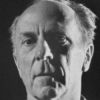Edward Weston

Edward Weston
Edward Henry Westonwas a 20th-century American photographer. He has been called "one of the most innovative and influential American photographers…" and "one of the masters of 20th century photography." Over the course of his 40-year career Weston photographed an increasingly expansive set of subjects, including landscapes, still lifes, nudes, portraits, genre scenes and even whimsical parodies. It is said that he developed a "quintessentially American, and specially Californian, approach to modern photography" because of his focus on the people and...
NationalityAmerican
ProfessionPhotographer
Date of Birth24 March 1888
CityHighland Park, IL
CountryUnited States of America
Anything more than 500 yards from the car just isn't photogenic.
If I have any 'message' worth giving to a beginner it is that there are no short cuts in photography.
The fact is that relatively few photographers ever master their medium. Instead they allow the medium to master them and go on an endless squirrel cage chase from new lens to new paper to new developer to new gadget, never staying with one piece of equipment long enough to learn its full capacities, becoming lost in a maze of technical information that is of little or no use since they don't know what to do with it.
Photography to the amateur is recreation, to the professional it is work, and hard work too, no matter how pleasurable it my be.
The camera sees more than the eye, so why not make use of it?
Anything that excites me for any reason, I will photograph; not searching for unusual subject matter, but making the commonplace unusual.
Now, to consult the rules of composition before making a picture is a little like consulting the law of gravity before going for a walk.
The prejudice many photographers have against colour photography comes from not thinking of colour as form. You can say things with colour that can't be said in black and white... Those who say that colour will eventually replace black and white are talking nonsense. The two do not compete with each other. They are different means to different ends.
Very often people looking at my pictures say, 'You must have had to wait a long time to get that cloud just right (or that shadow, or the light).' As a matter of fact, I almost never wait, that is, unless I can see that the thing will be right in a few minutes. But if I must wait an hour for the shadow to move, or the light to change, or the cow to graze in the other direction, then I put up my camera and go on, knowing that I am likely to find three subjects just as good in the same hour.
Ultimately success or failure in photographing people depends on the photographer's ability to understand his fellow man.
This then: to photograph a rock, have it look like a rock, but be more than a rock.
I see no reason for recording the obvious.
...the pepper is beginning to show signs of strain, and tonight should grace a salad. It has been suggested that I am a cannibal to eat my models.
There is nothing like a Bach fugue to remove me from a discordant moment... only Bach hold up fresh and strong after repeated playing. I can always return to Bach when the other records weary me.